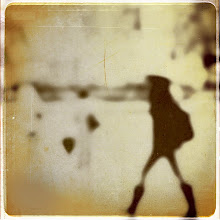In David Lodge’s comic novel Changing
Places, a group of academics play a confessional dinner party game called “Humiliation”(on
the topic of that, please someone from the States bring me Cards Against
Humanity). The objective is to own up to a major gap in one’s cultural
experience and the contest culminates when a young literature scholar
triumphantly declares that he has never read Hamlet (gasp!). He wins the game
but subsequently loses his job (that would have never happened nowadays).
My first impression of surveys of people’s
“favorite books” is that the nation is invited to participate in a massive,
inverted version of Lodge’s apocryphal game. It’s impossible to know how honest
people are: I mean, how many of us are prepared to admit that we’d rather
(imaginatively) hang out with Harry in Hogwarts than with Dedalus in Dublin (or
with Lisbeth in Stockholm - *raises hand)? J.K. Rowling’s series makes the top
100 in its entirety but so too does Joyce’s modernist masterpiece (nothing yet
about the Millenium trilogy, but I can wait).
Lists like the 100 best books of all
time have, of course, become a very familiar part of the way in which we
construct our sense of shared identity. The fact that new “best ever” lists are
generated annually suggests a kind of instinctive restlessness coupled with a
desire to remake the personal and public self. These polls represent a
risk-free playing out of the “anxiety of choice” that seems to be part of our
radically unstable age. The impermanence of the so-called “timeless classics”
is arguably further evidence of a lack of social coherence: a couple of years
ago, Titanic and OK Computer seemed dead certs to transcend their times. Today
Radiohead are those hipster dudes nobody really, thoroughly liked, and Titanic a
huge moneymaker. Granted, with a cool soundtrack. But would they really want to
be blessed (or cursed) with the dubious label “classic”?
Conferring permanent significance to a
work of art is a problematic act. George Steiner has argued that “post-modern
culture” is an oxymoronic term: culture, he maintains, is necessarily
hierarchical whereas the “postmodern condition” wishes away al boundaries,
divisions and pecking orders. The cultural anxiety implicit in this position
is, in my view, misplaced. Culture is transient and so too are the purposes
that it serves. We should be prepared to critique our heritage, in all of its
literary, artistic, political and religious manifestations.
That’s why I agree with these people’s
choice lists, when they are being honest. The results might upset some academic
specialists, but the point is that this is not an undergraduate reading list,
nor was it meant to be. I mean most of us have a sneaky suspicion that what we
like to read might not be what we “should” be reading. How else would we
explain the presence of a Dan Brown or Paulo Coelho novel within these lists?
No matter how instable cultural canons
are, we do have to make choices and I’m happy that there is a difference
between the books we nominate as personal favorites and those that we believe
will make us better people by reading. This contradiction is very difficult to
wrestle our way free from without imposing an impossibly restrictive and highly
fictional form of ethics on our reading habits.
Lists and rankings might be inadequate
gestures towards making a fragmented culture cohere. We don’t worship or even
watch television together anymore but we do like to remember together. The
pursuit of collective memory need not be a seductive-destructive, honeyed
nostalgia, but part of a creative quest to discern what and why we like what we
like.







